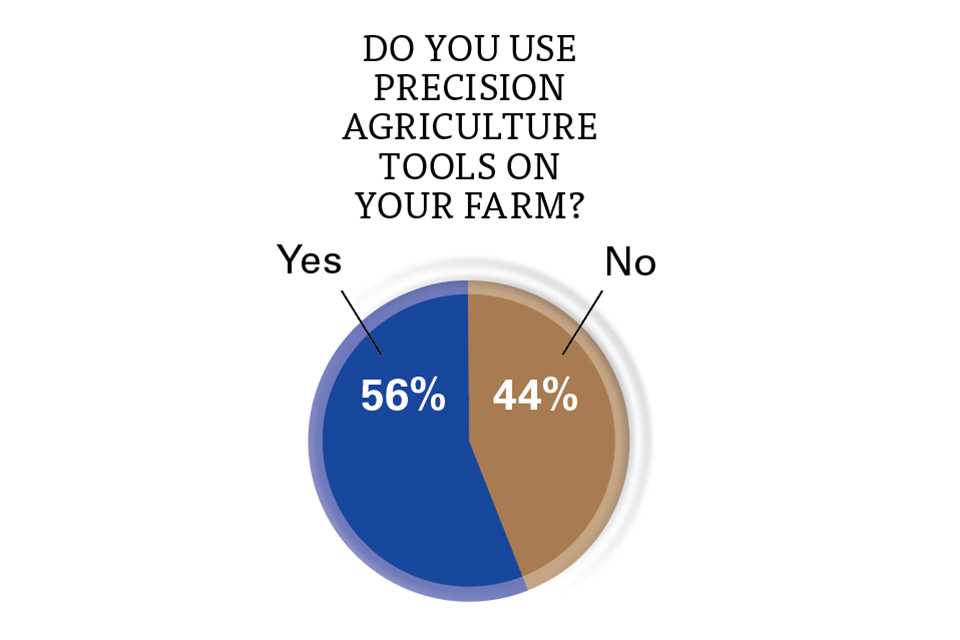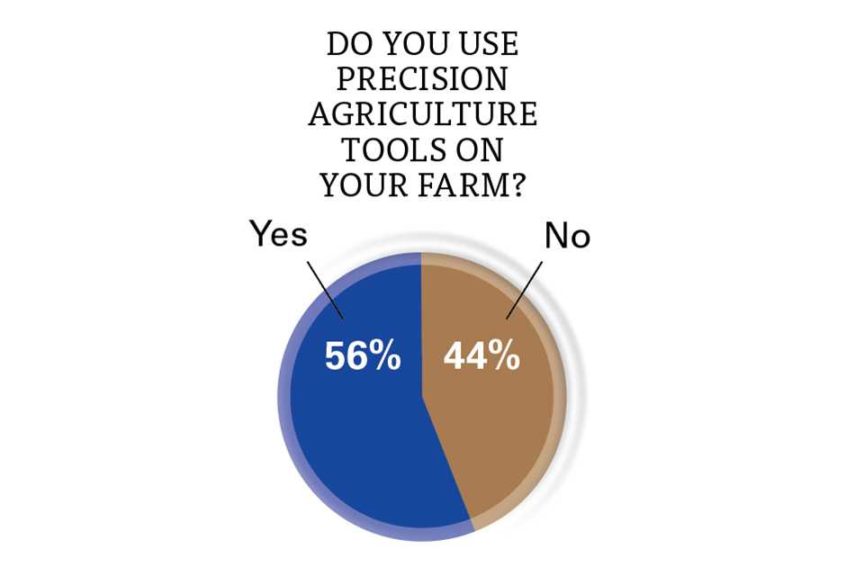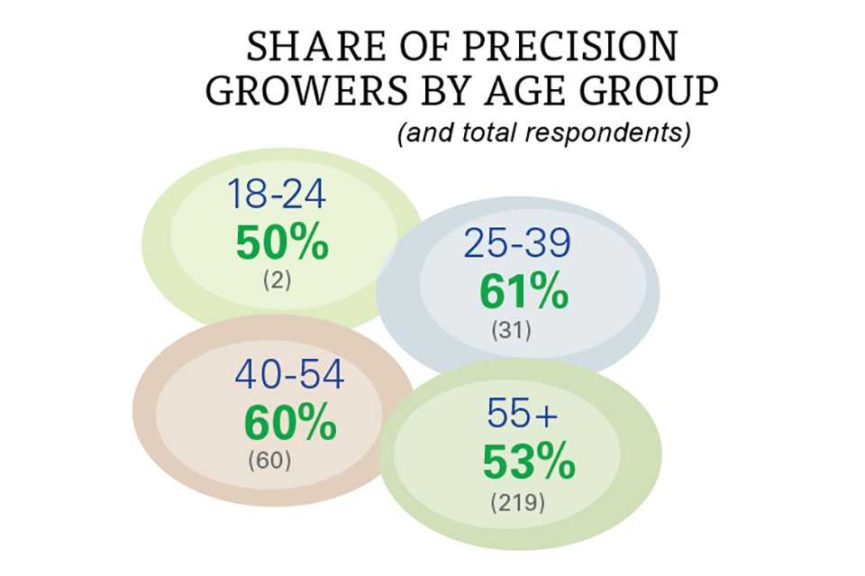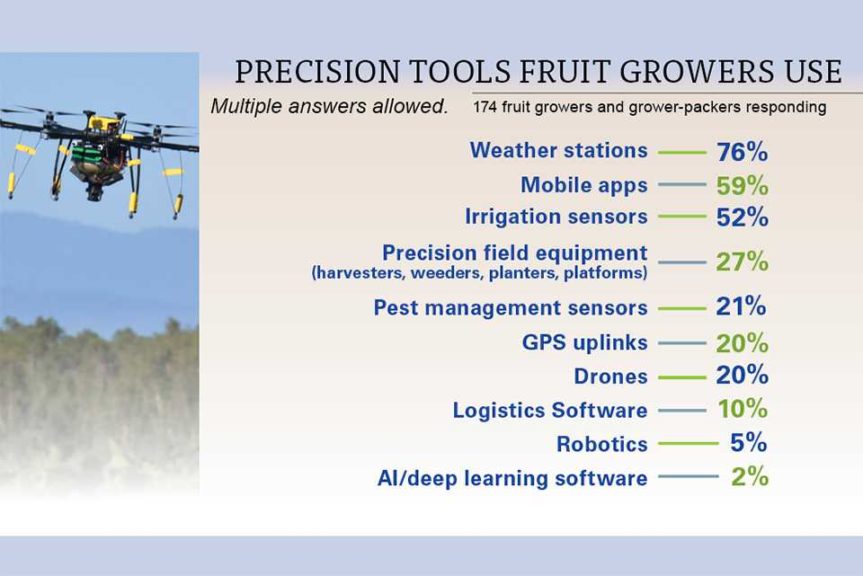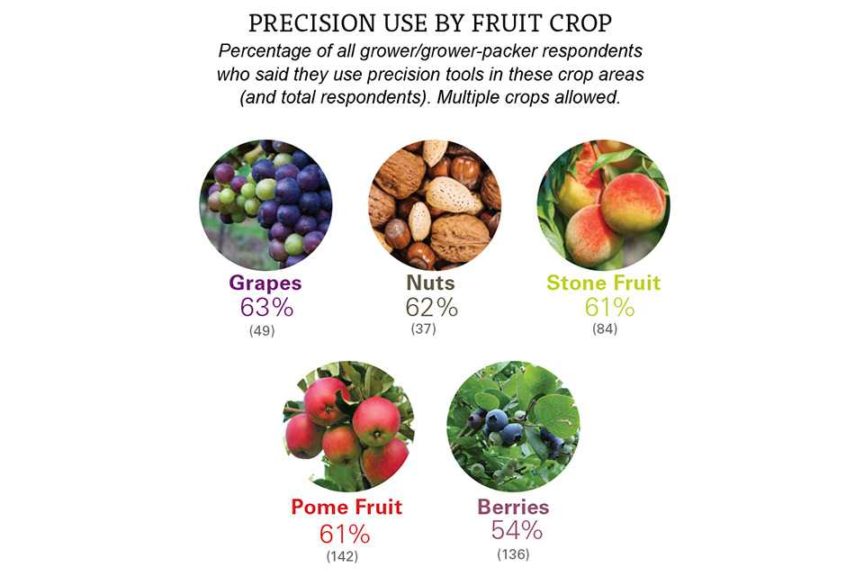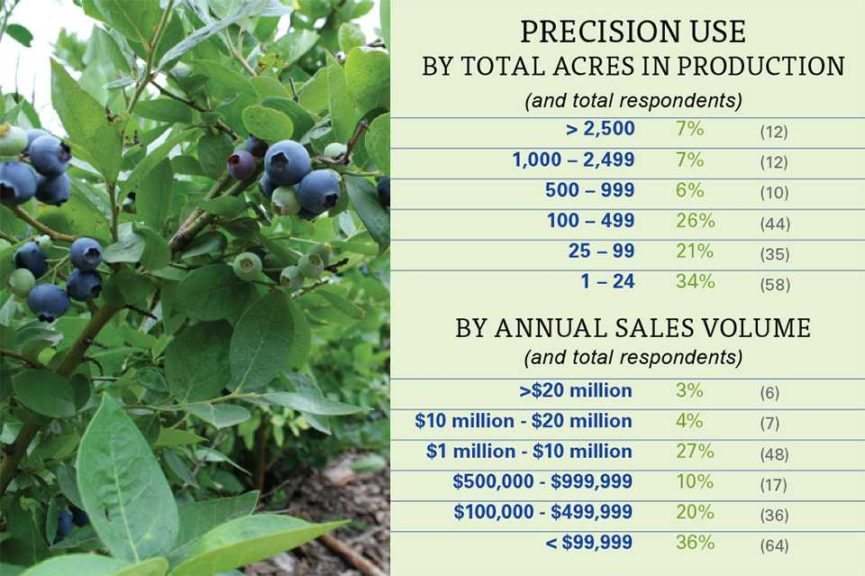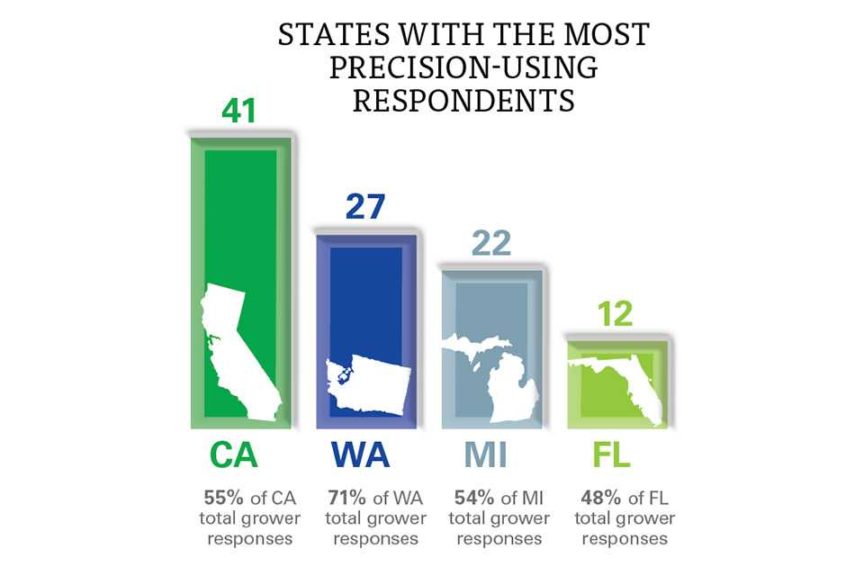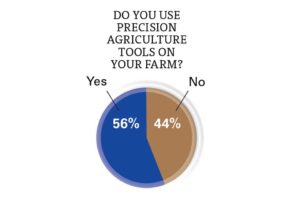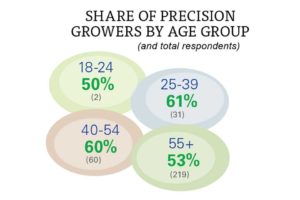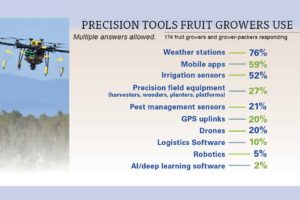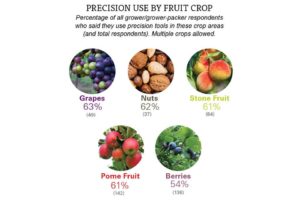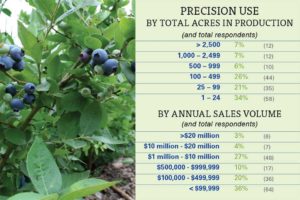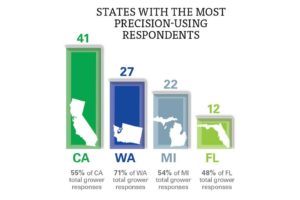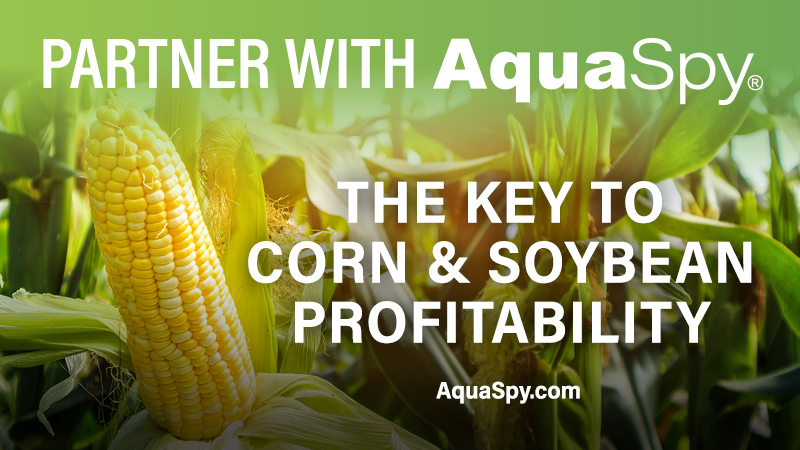Get a Sharp Look at Precision Ag Use Trends in Fruit
There is no single description of a “precision grower” in commercial fruit production. Crops, geographies, technologies, farm size … all are far too variable. However, we can say with some certainty that the most common characteristics of a fruit grower engaged in precision agriculture are these:
- You’re aged 25 to 39.
- You produce grapes.
- You farm in California.
- Your operation has 2,500 or more acres in production.
- Your operation generates annual sales of at least $10 million.
- You use some combination of weather stations, mobile apps, and irrigation sensors.
This composite profile is based on data from American Fruit Grower and Western Fruit Grower magazine’s 2020 State of the Industry survey.
Overall, 329 fruit growers and grower-packers responded to the question, “Do you use precision agriculture tools on your farm?” Just under 56% said they do indeed. This is a good bit lower than the 68% affirmative response we received a year ago, though that data was drawn from a different pool of random respondents.
Respondents in the aggregate offered a vivid snapshot of precision agriculture in fruit production. For instance:
- Top reasons to adopt precision are labor concerns; precision application; and a drive for greater efficiency, especially in irrigation.
- Technologies that are expected to become commonplace in the next few years are sensors, drones, and precision irrigation — in that order.
- And what about by 2040? A quarter of responding growers said: Watch for robotics. (Though the technology clearly will have to become more affordable by then. Half of the precision growers who reported use of robotics have annual sales volume of more than $20 million).
Among growers who don’t currently use precision, factors they cite typically include the smaller size of their operations, precision’s high cost and time required to adopt, and a general perceived lack of need for the technology.
We asked precision producers how they might respond to a fellow grower who asserts precision technology has no tangible benefits. Most frequently they said they would counter either that it “depends” or that they “disagree.”
One precision producer — a grower/packer of pears, sweet cherries, peaches, and wine grapes in Colorado — spoke perhaps for many in describing precision as a “quest for better understanding of what is happening in the crops we grow and the opportunity to be more efficient whether with water application, pest control programs, or potential labor efficiencies.”
For specialty crops, that’s about as tidy of a definition of precision agriculture as there could be.





